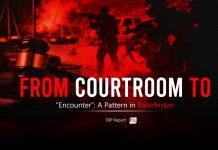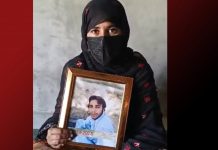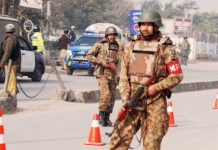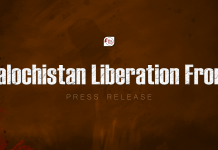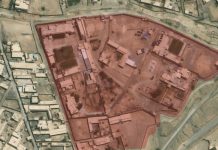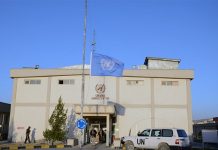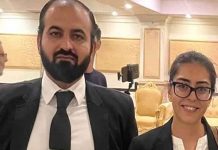Abdullah Ocalan, the imprisoned, ageing leader of the Kurdistan Workers’ Party (PKK), has reportedly called for the organization to dissolve itself and end its decades-long guerrilla warfare against Turkiye. If confirmed, this would mark a historic turning point in the conflict between the Turkish state and the PKK, which has lasted over four decades and claimed tens of thousands of lives. Ocalan’s message, allegedly delivered through a secret communication, has sparked intense debate about its implications for the Kurdish movement, Turkish government policies, and broader regional dynamics.
Who is Abdullah Ocalan?
Abdullah Ocalan is the founding leader of the PKK, which has waged an armed insurgency against Turkiye since 1984. Born in 1948 in southeastern Turkiye, he emerged as a revolutionary figure in the 1970s, advocating for Kurdish self-determination and Marxist-inspired ideals. Under his leadership, the PKK launched a guerrilla war against the Turkish state, leading to decades of conflict and regional instability.
Despite his arrest in 1999 and imprisonment on Imrali Island, Ocalan has remained an influential figure. His ideology has shifted over time from Marxist-Leninist revolution to advocating democratic autonomy and peace negotiations. His writings have shaped Kurdish political movements beyond Turkiye, influencing groups in Syria and Iraq.
Ocalan’s connection to the PKK remains central to its identity, even as internal factions differ on strategy. In its early years, he enforced strict discipline and directed military operations. After his capture, he began pushing for a peaceful resolution to the Kurdish issue.
Ocalan’s Reported Statement and Its Context
According to recent reports, Ocalan has urged the PKK leadership to abandon armed struggle, dissolve the organization, and seek a peaceful resolution to the Kurdish issue. His message, allegedly delivered to PKK leadership in the Qandil Mountains, signals a fundamental shift from armed resistance to political engagement.
“I am making a call for the laying down of arms, and I take on the historical responsibility of this call,” Ocalan said in the letter.
“Convene your [party] congress and make a decision. All groups must lay down their arms and the PKK must dissolve itself,” Ocalan reportedly stated. He explained that the PKK had been formed at a time when the Turkish state restricted Kurdish rights, but Kurdish identity is no longer denied in Turkiye, and there have been “improvements in freedom of expression.”
“Respect for identities, free self-expression, and democratic self-organization of each segment of society based on their own socio-economic and political structures are only possible through the existence of a democratic society and political space,” Ocalan said in his letter.
Some analysts argue this development is in line with Ocalan’s long-standing advocacy for a peaceful resolution. Since his capture in 1999, he has periodically engaged in negotiations with the Turkish state. His involvement in peace efforts was most notable during the 2013-2015 peace process when the PKK observed a ceasefire and Ankara initiated reforms to address Kurdish grievances. However, that process collapsed in 2015, leading to renewed violence.
Reports suggest that Ocalan’s latest message was conveyed through intermediaries, though the exact means remain unclear. His prolonged isolation has raised questions about whether the statement was made under duress. If it accurately reflects his stance, however, it represents one of the most significant moments in the PKK’s history.
Reactions from the PKK and the Kurdish Movement
The PKK leadership has not issued an official response to Ocalan’s reported statement, though internal divisions over strategy have existed for years. Some factions favor continued armed struggle, arguing that military pressure is necessary to extract concessions from Turkiye. Others believe shifting toward political engagement is the only viable path forward.
The broader Kurdish political landscape is complex, involving factions in Turkiye, Syria, Iraq, and Iran, including the Peoples’ Democratic Party (HDP) and the Syrian Democratic Forces (SDF). Ocalan still holds considerable influence, but whether his call will be followed remains to be seen. Some Kurdish groups may use this moment to push for renewed peace efforts, while others may see it as a strategic miscalculation.
The Turkish Government’s Position
Ankara has yet to issue an official statement regarding Ocalan’s reported call for the PKK to dissolve. President Recep Tayyip Erdogan’s administration has historically maintained a hardline stance against the PKK, viewing it as a terrorist organization. The Turkish government has pursued military operations against PKK strongholds in southeastern Turkiye, northern Iraq, and northern Syria while also cracking down on Kurdish political movements.
If Ocalan’s message is genuine, it could present an opportunity for dialogue. However, given the strong nationalist sentiment in Turkiye, it remains unclear whether the government would engage in negotiations or see this as an opportunity to demand unconditional surrender. How Ankara handles this situation could significantly impact the future of Turkish-Kurdish relations.
Regional and International Implications
The impact of Ocalan’s reported call extends beyond Turkiye’s borders. The Kurdish struggle is a transnational issue, involving actors in Syria, Iraq, and Iran. The SDF, which has been a key U.S. ally in the fight against ISIS, has ideological and historical ties to the PKK. A shift in the PKK’s strategy could have ripple effects on Kurdish politics in Syria and beyond.
Internationally, governments and organizations that have long designated the PKK as a terrorist organization, including the U.S. and the European Union, may view this development as a sign of de-escalation. However, much depends on whether the PKK follows through with dissolution and how Turkiye responds. If Ankara continues military campaigns in Kurdish regions, tensions may persist despite Ocalan’s appeal.
Conclusion
Ocalan’s reported call for the PKK to disband could mark a turning point in the long-running conflict between the Turkish state and the Kurdish movement. If genuine, this appeal for peace presents an opportunity for renewed dialogue but also raises significant questions. Will the PKK leadership comply? Will the Turkish government use this as a chance for reconciliation, or will it continue its military and political crackdown? What happens next will determine whether this marks the end of the PKK’s armed struggle or just another chapter in the ongoing Kurdish conflict.

